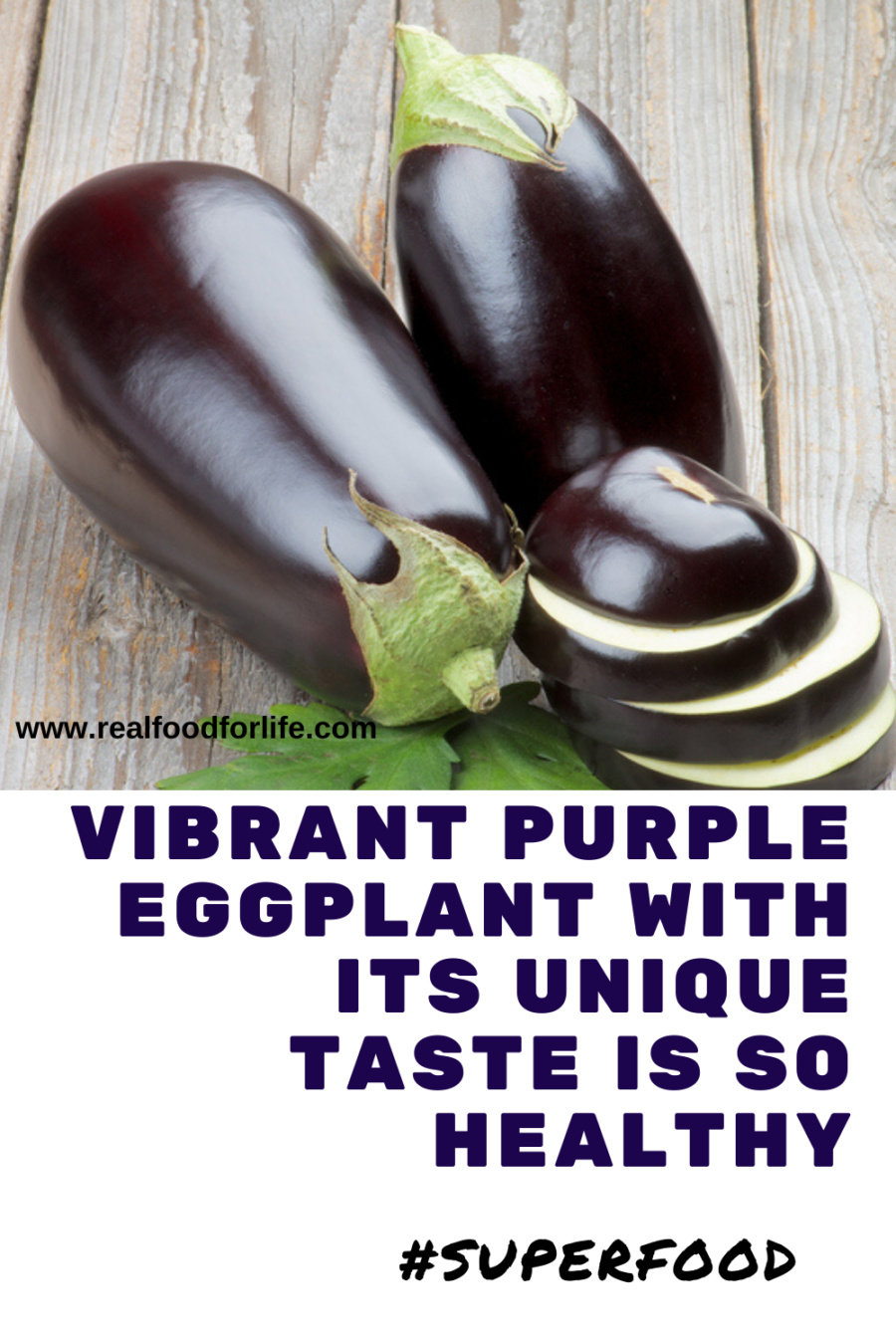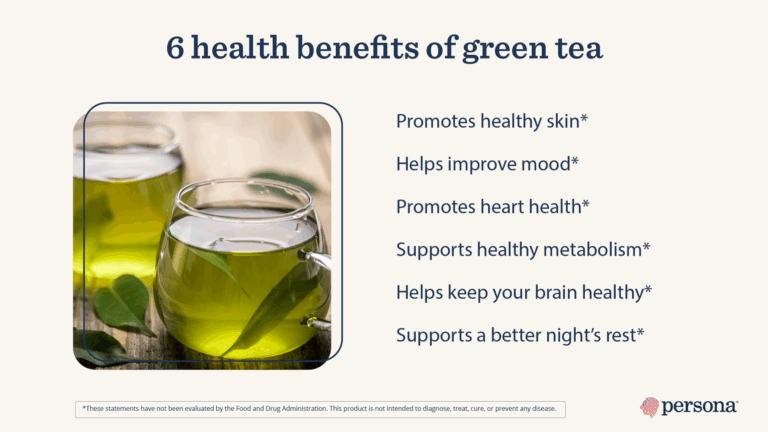The Power of Purple: 7 Surprising Health Benefits of Eggplant
The world of culinary delights is a kaleidoscope of colors, flavors, and textures, each offering its unique symphony to our senses. Yet, among this vibrant tapestry, there exists a hue that often commands respect, evokes a sense of regal mystery, and, as we are increasingly discovering, harbors profound health benefits: purple. And at the heart of this regal shade, gracing tables and inspiring dishes across cultures, lies the humble yet magnificent eggplant.
Often misunderstood, sometimes maligned for its spongy texture or perceived blandness, the eggplant (scientifically Solanum melongena) is a vegetable of extraordinary depth. Its glossy, deep purple skin, often shimmering under the light, is not merely an aesthetic marvel. It is a protective cloak, a testament to the concentrated power of phytochemicals nestled within. From its ancient origins in Southeast Asia, journeying across continents through the hands of traders and explorers, the eggplant has woven itself into the fabric of global gastronomy, evolving into countless varieties – from the slender Japanese eggplant to the plump Italian globe, the creamy white varieties, and the variegated striped heirlooms. Each form, while distinct in shape and subtle flavor, carries the same intrinsic purple promise.
For too long, eggplant has been relegated to supporting roles, often deep-fried into unctuous parmigiana or mashed into baba ghanoush. While undeniably delicious, these preparations sometimes overshadow its raw, unadulterated potential. This article aims to peel back those layers, to move beyond the culinary curtain and unveil the true protagonist of this story: the eggplant, not just as a versatile ingredient, but as a silent guardian of our health, a purveyor of wellness, and a vibrant testament to nature’s intricate pharmacy.
Prepare to embark on a journey of discovery, as we explore the profound impact this purple gem can have on our well-being. Beyond its striking appearance, beyond its culinary adaptability, lies a treasure trove of nutrients waiting to be unleashed. We will delve into seven surprising health benefits of eggplant, uncovering the scientific rationale behind its potency and inviting you to embrace the power of purple in a whole new light.
1. Antioxidant Powerhouse: A Shield Against Cellular Damage
To understand the profound health benefits of eggplant, one must first grasp the concept of antioxidants. In the relentless biochemical dance within our bodies, free radicals – unstable molecules – are constantly being formed. These rogue elements can wreak havoc on our cells, leading to oxidative stress, which is implicated in aging, inflammation, and a host of chronic diseases, including cancer, heart disease, and neurodegenerative conditions. Antioxidants are the body’s valiant defenders, neutralizing these free radicals and protecting our cellular integrity.
Eggplant, particularly its vibrant purple skin, is an extraordinary source of these protective compounds. Its most celebrated antioxidant is nasunin, a potent anthocyanin pigment that gives eggplant its characteristic deep hue. Anthocyanins are a class of flavonoids found in many purple, blue, and red fruits and vegetables, and they are renowned for their robust antioxidant capabilities. Nasunin, in particular, has garnered significant scientific attention due to its unique structure, which allows it to scavenge free radicals and protect cell membranes, especially those in the brain, from oxidative damage. Think of nasunin as a tiny, yet formidable, invisible shield, constantly deflecting microscopic attacks on your vital cellular structures.
But nasunin isn’t the only hero in this purple narrative. Eggplant also contains chlorogenic acid, another powerful antioxidant compound. Chlorogenic acid is not only an excellent free radical scavenger but also exhibits antimicrobial, antiviral, and anticarcinogenic properties. It’s a multi-talented compound that works synergistically with nasunin and other phytochemicals in eggplant to amplify its protective effects. This means that when you consume eggplant, you’re not just getting one type of defense; you’re engaging a whole team of molecular bodyguards, working in concert to safeguard your health.
The presence of these diverse and potent antioxidants transforms eggplant from a mere vegetable into a functional food, actively contributing to your body’s resilience. By regularly incorporating eggplant into your diet, you are proactively bolstering your defenses against the everyday wear and tear that leads to cellular damage and the onset of various health issues. It’s a simple, delicious way to invest in your long-term health, leveraging nature’s own protective mechanisms.
2. The Heart’s Best Friend: A Cardiovascular Champion
Our cardiovascular system, a complex network of blood vessels and a tireless pumping heart, is the engine of our lives. Maintaining its health is paramount, and diet plays an indisputable role in this crucial endeavor. Eggplant emerges as a significant ally in the quest for a robust heart, offering multiple mechanisms to support cardiovascular well-being.
One of the primary ways eggplant benefits the heart is through its rich fiber content. Dietary fiber, particularly soluble fiber, is well-known for its ability to bind with cholesterol in the digestive tract, preventing its absorption into the bloodstream. This process helps to lower levels of low-density lipoprotein (LDL) cholesterol – often dubbed "bad" cholesterol – which is a major risk factor for atherosclerosis, the hardening and narrowing of arteries. By reducing LDL cholesterol, eggplant contributes to clearer, more flexible arteries, allowing for unimpeded blood flow.
Beyond fiber, the antioxidants we discussed earlier, especially nasunin and chlorogenic acid, play a pivotal role in heart health. These compounds help reduce oxidative stress and inflammation within the blood vessels, which are key contributors to the development of heart disease. Oxidative damage to LDL particles makes them more likely to form plaque in the arteries. By neutralizing free radicals, eggplant’s antioxidants help prevent this destructive process, keeping arteries supple and healthy.
Furthermore, eggplant contains potassium, an essential mineral that is crucial for maintaining healthy blood pressure. Potassium works by counteracting the effects of sodium in the body, helping to relax blood vessel walls and reduce overall blood volume, thereby lowering blood pressure. A diet rich in potassium and low in sodium is a cornerstone of hypertension prevention and management, and eggplant provides a delicious way to boost your potassium intake.
Studies, including some conducted on animals, have shown that eggplant extract can lead to significant reductions in cholesterol levels and improvements in heart function. While human studies are ongoing, the cumulative evidence from its nutritional profile paints a clear picture: eggplant is a powerful food for cardiovascular support. It’s not just about lowering cholesterol; it’s about fostering an environment within your body where your heart and blood vessels can thrive, beating steadily and efficiently for years to come.
3. Gut Guardian: Fostering a Flourishing Digestive System
The human gut is often referred to as our "second brain," a complex ecosystem teeming with trillions of microorganisms that profoundly influence not only our digestion but also our immune system, mood, and overall health. A healthy gut is a cornerstone of well-being, and eggplant is a quiet champion in supporting this vital internal environment.
The star player in eggplant’s digestive benefits is its dietary fiber. Eggplant is a good source of both soluble and insoluble fiber. Insoluble fiber acts like a broom, adding bulk to stool and facilitating its smooth passage through the digestive tract. This helps prevent constipation, promotes regularity, and can reduce the risk of diverticular disease. It ensures that waste products are efficiently removed from the body, preventing the buildup of toxins.
Soluble fiber, on the other hand, absorbs water and forms a gel-like substance in the gut. This slows down digestion, which contributes to a feeling of fullness (more on this later) and helps regulate blood sugar levels. Crucially, soluble fiber also acts as a prebiotic, meaning it feeds the beneficial bacteria in your gut microbiome. These friendly bacteria ferment the fiber, producing short-chain fatty acids (SCFAs) like butyrate, which are vital for the health of colon cells, reduce inflammation, and may even have systemic health benefits. By nourishing these good bacteria, eggplant helps maintain a balanced and diverse gut microbiome, which is essential for proper nutrient absorption, immune function, and protection against pathogens.
A healthy digestive system means more than just comfortable bowel movements; it’s about efficient nutrient extraction, a robust immune response (a significant portion of our immune system resides in the gut), and even a positive impact on mental clarity and mood. By providing both types of fiber, eggplant acts as a comprehensive gut guardian, promoting smooth operation and fostering a thriving internal ecosystem. It’s a simple, natural way to keep your digestive engine humming along efficiently, ensuring that the rest of your body benefits from optimal internal harmony.
4. Blood Sugar Balancer: A Sweet Ally for Glycemic Control
In an era where metabolic disorders and type 2 diabetes are increasingly prevalent, managing blood sugar levels has become a critical aspect of preventive health. For those looking to maintain stable glucose levels or manage existing conditions, eggplant offers a surprisingly effective, yet gentle, intervention.
The primary mechanism by which eggplant aids in blood sugar control is, once again, its generous fiber content. As mentioned, soluble fiber slows down the digestion and absorption of carbohydrates. When carbohydrates are broken down slowly, glucose is released into the bloodstream gradually, preventing sharp spikes in blood sugar that can strain the pancreas and lead to insulin resistance over time. This sustained release of energy helps maintain more stable blood glucose levels, reducing the "rollercoaster effect" often associated with high-glycemic foods.
Furthermore, eggplant has a very low glycemic index (GI). The glycemic index is a measure of how quickly a food raises blood sugar levels. Foods with a low GI are digested and absorbed slowly, resulting in a gradual and sustained rise in blood glucose. As a low-GI vegetable, eggplant can be an excellent addition to meals, helping to lower the overall glycemic load of the plate.
Beyond fiber, research suggests that certain compounds in eggplant may have additional benefits for blood sugar regulation. Polysaccharides and polyphenols found in eggplant have been studied for their potential to inhibit enzymes involved in carbohydrate digestion, further slowing down glucose absorption. While these mechanisms require more extensive human research, the established role of fiber alone makes eggplant a valuable food for glycemic control.
For individuals with diabetes, pre-diabetes, or those simply aiming for metabolic health, incorporating eggplant into meals can be a strategic move. It allows for satisfaction and satiety without contributing to the glycemic burden. By stabilizing blood sugar, eggplant supports healthy insulin function, reduces the risk of long-term complications associated with high glucose levels, and contributes to sustained energy throughout the day, avoiding the dreaded post-meal energy crash.
5. Brain Booster: Fueling Cognitive Vitality
The human brain, an intricate marvel of biological engineering, consumes a disproportionate amount of the body’s energy and is particularly vulnerable to oxidative stress. Protecting its delicate neural networks is paramount for maintaining cognitive function, memory, and overall mental acuity as we age. Here, the purple power of eggplant once again shines, offering specific compounds that act as guardians for our grey matter.
The key players in eggplant’s brain-boosting capabilities are the anthocyanins, particularly nasunin, located predominantly in the skin. Research suggests that anthocyanins have the remarkable ability to cross the blood-brain barrier, a highly selective membrane that protects the brain from harmful substances. Once inside the brain, nasunin acts as a potent antioxidant, neutralizing free radicals that can damage brain cells and contribute to neurodegenerative diseases like Alzheimer’s and Parkinson’s.
By reducing oxidative stress and inflammation in the brain, nasunin helps protect the delicate fatty membranes of brain cells (neurons). Healthy cell membranes are crucial for efficient nerve signal transmission and overall cognitive function. Think of it as keeping the electrical wiring of your brain insulated and pristine, ensuring clear and rapid communication between different brain regions.
Beyond direct antioxidant action, some studies indicate that anthocyanins may also enhance blood flow to the brain. Improved cerebral circulation ensures that brain cells receive an adequate supply of oxygen and nutrients, which are essential for optimal cognitive performance, memory retention, and mental sharpness. A well-nourished brain functions more efficiently, allowing for better concentration, problem-solving, and mood regulation.
Incorporating eggplant into your diet is a delicious way to provide your brain with the sophisticated defense it needs. It’s not a magic pill, but a consistent supply of these brain-protective compounds can contribute significantly to maintaining cognitive vitality, supporting learning, memory, and overall mental resilience throughout your life. It’s a simple, yet powerful, investment in the long-term health of your most vital organ.
6. Weight Management Ally: Satiety, Satisfaction, and Smart Choices
In the perennial pursuit of a healthy weight, many diets focus on restriction and deprivation. However, sustainable weight management is often about smart choices that promote satiety and provide nutritional density without excessive calories. Eggplant, with its unique composition, emerges as an excellent ally in this endeavor, offering a fulfilling and low-calorie option.
One of the most significant advantages of eggplant for weight management is its low calorie density. Composed of over 90% water, a cup of raw eggplant contains a mere 20-35 calories, making it an ideal bulk ingredient. This means you can eat a substantial portion of eggplant, feeling satisfied and full, without consuming a large number of calories. This "volumetrics" approach to eating is highly effective for weight loss, as it allows you to enjoy larger meal sizes, which psychologically contributes to satiety, without overshooting your caloric goals.
The high fiber content of eggplant also plays a crucial role. Fiber adds bulk to food, filling up the stomach and triggering stretch receptors that signal fullness to the brain. Furthermore, fiber slows down the rate at which food empties from the stomach, leading to prolonged satiety. This means you feel full for longer after an eggplant-rich meal, reducing the likelihood of snacking between meals and curbing cravings. The sustained feeling of fullness can be a game-changer for those struggling with portion control or frequent hunger pangs.
Beyond satiety, the fiber in eggplant also contributes to stable blood sugar levels (as discussed earlier). By preventing rapid spikes and crashes in blood glucose, eggplant helps to mitigate the sudden hunger pangs and cravings that often follow high-sugar or refined carbohydrate meals. This metabolic stability is crucial for avoiding overeating and making healthier food choices throughout the day.
When prepared healthily (e.g., roasted, grilled, baked, or stewed rather than deep-fried), eggplant can be a versatile base for numerous weight-friendly dishes. It absorbs flavors beautifully, making it an excellent canvas for herbs, spices, and lean proteins. By integrating eggplant into your meals, you can enjoy delicious, satisfying food that actively supports your weight management goals, transforming your plate into a powerful tool for health and well-being.
7. Anti-Inflammatory & Cancer Combatant: A Proactive Defense
Chronic inflammation is a silent epidemic, recognized as a root cause or contributing factor to a vast array of modern diseases, including heart disease, diabetes, arthritis, autoimmune conditions, and even cancer. While acute inflammation is a natural and necessary part of the body’s healing process, prolonged, low-grade systemic inflammation can gradually erode health. Eggplant, with its rich tapestry of phytochemicals, offers a powerful natural defense against this insidious process, extending its protective reach to potentially combat cancer.
The primary anti-inflammatory agents in eggplant are its anthocyanins (like nasunin) and chlorogenic acid. These antioxidants don’t just neutralize free radicals; they also actively modulate inflammatory pathways in the body. They can help suppress the production of pro-inflammatory molecules and enzymes, effectively dialing down the inflammatory response at a cellular level. By reducing chronic inflammation, eggplant contributes to a healthier internal environment, mitigating the risk of inflammatory diseases. Imagine these compounds as tiny peacekeepers, working to calm cellular turmoil and restore harmony within your tissues.
Furthermore, the anti-inflammatory and antioxidant properties of eggplant extend their benefits into the realm of cancer prevention. Cancer development is often initiated by cellular damage (often from oxidative stress) and perpetuated by chronic inflammation, which can promote cell proliferation and survival. By actively reducing oxidative stress and inflammation, eggplant creates an environment less conducive to cancer initiation and progression.
Specific compounds in eggplant have also been studied for their direct anti-cancer potential. Solasodine rhamnosyl glycosides (SRGs), found in eggplant and other nightshades, have shown promise in laboratory studies for their ability to induce apoptosis (programmed cell death) in various cancer cells, including skin cancer cells (basal cell carcinoma and squamous cell carcinoma). While this research is primarily in preclinical stages and typically involves concentrated extracts rather than whole eggplant consumption, it highlights the rich biochemical complexity and potential therapeutic value of this vegetable.
By regularly consuming eggplant, you are providing your body with a steady supply of compounds that work proactively to reduce inflammation and protect against cellular damage. This isn’t a cure, but a powerful dietary strategy to strengthen your body’s natural defenses, reduce long-term disease risk, and promote overall cellular health. It underscores eggplant’s role not just as a food, but as a fundamental component of a health-conscious lifestyle, working tirelessly behind the scenes to keep your body resilient and vibrant.
Beyond the Benefits: Embracing Eggplant in Your Kitchen
Understanding the profound health benefits of eggplant is one thing; incorporating it deliciously and regularly into your diet is another. Fortunately, eggplant is one of the most versatile vegetables, capable of transforming its texture and flavor to suit a myriad of culinary traditions.
Variety is the Spice of Life (and Eggplant):
Don’t limit yourself to the large, globe-shaped purple eggplant. Explore the world of eggplant varieties:
- Japanese/Chinese Eggplant: Long, slender, and less bitter, often requiring no salting. Ideal for stir-fries, grilling, and tempura.
- Italian Eggplant: The classic large, plump variety, excellent for parmigiana, roasting, and stuffing.
- Thai Eggplant: Small, round, often green or white, with a slightly firmer texture, commonly used in curries.
- White Eggplant: Milder in flavor, with a creamy texture, perfect for roasting or pureeing.
- Fairy Tale Eggplant: Small, striped, and very tender, great for quick cooking.
Preparation Prowess: Maximizing Flavor and Nutrition:
Many people avoid eggplant due to its perceived bitterness or tendency to absorb oil. A few simple tricks can revolutionize your eggplant experience:
- Salting: For larger varieties, slicing and salting the eggplant for 30 minutes before cooking can draw out bitter compounds and excess moisture, leading to a creamier texture and less oil absorption. Pat dry thoroughly before cooking.
- Cooking Methods:
- Roasting: Halve or dice eggplant, toss with olive oil, herbs, and spices, then roast until tender and caramelized. This concentrates its flavor beautifully.
- Grilling: Slice into rounds or planks, brush with marinade, and grill until tender with appealing char marks.
- Baking: Perfect for dishes like eggplant parmigiana (with minimal oil), moussaka, or baked eggplant boats stuffed with grains and vegetables.
- Stir-frying/Sautéing: Smaller, less bitter varieties excel here. Use a moderate amount of oil and high heat for a quick cook.
- Pureeing: Eggplant is the star of baba ghanoush, a smoky Middle Eastern dip, or can be added to soups and stews for creaminess.
Culinary Inspirations from Around the Globe:
Eggplant’s adaptability has cemented its place in diverse cuisines:
- Mediterranean: Think Greek moussaka, Turkish imam bayildi (stuffed eggplant), or Italian caponata and parmigiana.
- Middle Eastern: Baba ghanoush, mutabal, or simple grilled eggplant salads.
- Asian: Japanese miso-glazed eggplant, Chinese garlic eggplant stir-fry, or Thai green curry with eggplant.
- Indian: Baingan bharta (smoky mashed eggplant), or various curries and vegetable stews.
By exploring these preparation methods and global inspirations, you can unlock the full potential of eggplant, transforming it from a mere ingredient into a culinary star that delivers both exquisite flavor and unparalleled health benefits. Remember, healthy eating doesn’t have to be monotonous; it can be a vibrant exploration of nature’s bounty, with the regal purple eggplant leading the charge.
A Legacy of Purple: Eggplant’s Journey Through Time
The story of eggplant is as rich and layered as its flavor, a testament to humanity’s enduring relationship with the plant kingdom. Its origins trace back over 4,000 years to the hot, humid regions of Southeast Asia, likely India or China, where it grew wild before being domesticated. Early Sanskrit texts mention the "king of vegetables," hinting at its revered status even in antiquity.
From its Asian cradle, eggplant embarked on a remarkable global journey. Arab traders introduced it to the Middle East and North Africa as early as the 7th century, where it quickly became a staple, particularly in Persian and Moorish cuisines. Its arrival in Europe was somewhat later and more nuanced. The Moors brought it to Spain in the 8th century, and from there, it slowly spread across the Mediterranean.
Initially, eggplant faced suspicion in some parts of Europe. Its membership in the nightshade family, alongside belladonna (deadly nightshade), led to fears of toxicity, sometimes earning it the unfortunate moniker "mad apple." Folk tales warned of madness or fever if consumed. However, its deliciousness and versatility eventually triumphed over superstition. Italian, Greek, and Turkish cooks embraced it wholeheartedly, giving rise to iconic dishes like parmigiana, moussaka, and imam bayildi.
The word "eggplant" itself reflects this journey. The English name likely originated in the 18th century from white varieties that resembled goose or chicken eggs. Its scientific name, Solanum melongena, comes from its Latin genus Solanum (shared with potatoes and tomatoes) and the Arabic badinjan, which itself derived from the Persian bādingān and the Sanskrit vātin-gaṇa. This linguistic lineage beautifully mirrors its geographical spread.
Today, eggplant is cultivated worldwide, with China, India, Egypt, and Turkey being among the largest producers. Its global presence is a testament to its resilience, adaptability, and, ultimately, its undeniable culinary and nutritional value. From ancient gardens to modern plates, the eggplant has not only sustained populations but has also enriched cultures, proving itself to be far more than just a purple vegetable – it is a living legacy.
Final Thoughts: Embracing the Purple Promise
As we conclude our deep dive into the extraordinary world of eggplant, it becomes abundantly clear that this majestic purple vegetable is far more than a simple culinary ingredient. It is a potent force of nature, a testament to the intricate pharmacy found within the plant kingdom, and a vibrant invitation to embrace a healthier way of living.
From its profound antioxidant capabilities, spearheaded by the remarkable nasunin and chlorogenic acid, to its steadfast support for cardiovascular health, its diligent guardianship of our digestive system, and its subtle yet significant role in blood sugar balance, brain vitality, and weight management, eggplant truly embodies the concept of a functional food. Its anti-inflammatory prowess and potential in cancer prevention further solidify its position as a proactive defender of our long-term well-being.
The journey of eggplant, from its ancient Asian origins to its current global culinary prominence, mirrors its journey within our bodies – transforming, nourishing, and protecting. It reminds us that often, the most potent remedies and the most profound health benefits are found not in exotic supplements, but in the simple, whole foods that nature so generously provides.
So, the next time you encounter that glossy, enigmatic purple orb in the produce aisle, don’t just see a vegetable. See a shield against disease, a friend to your heart, a balm for your gut, and a boost for your brain. See a culinary canvas awaiting your creativity, ready to infuse your meals with both exquisite flavor and unparalleled health. Embrace the power of purple. Embrace the humble, yet magnificent, eggplant, and let its surprising health benefits enrich your life, one delicious bite at a time. Your body, mind, and palate will undoubtedly thank you for it.






